Wang: Maritime cooperation possible
Updated: 2016-03-09 00:09
By ZHANG YUNBI in Beijing(China Daily USA)
|
||||||||
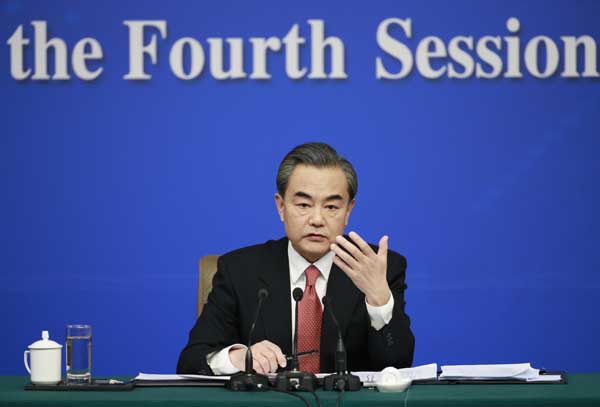 |
|
Foreign Minister Wang Yi gives a press conference on China's foreign policy and foreign relations on the sidelines of the fourth session of China's 12th National People's Congress in Beijing on Monday. FENG YONGBIN / CHINA DAILY |
Foreign Minister Wang Yi has stated the possibility of conducting maritime cooperation between Beijing and Washington if the latter "truly cools down", and he voiced confidence in tackling the two-way friction.
"Recently, there is growing friction concerning maritime issues. But I think when the United States truly cools down, it is entirely possible for us to consider conducting maritime cooperation," Wang said at a Tuesday press conference during the annual session of the National People's Congress in Beijing.
The senior diplomat attributed the source of such friction to the fact that "there are some people in the United States who have strategic suspicions about China and they are worried that China will one day supersede the US".
"China and the US are two major countries, and there is both cooperation and friction. This might be a normal state of affairs," Wang said.
He referred to the news in the morning that Washington announced trade restrictions on Chinese companies.
"We don't think it is the right approach to handle economic and trade disputes. This approach only hurts others without necessarily benefiting oneself," Wang said.
He mentioned previous bilateral efforts in converting divergences into cooperation, including successful cooperation on climate change and cyber issues.
Speaking of the Korean Peninsula nuclear issue, Wang has said China is "open to any initiatives" when noting proposals about three-party, four-party or even five-party contacts on resolving the issue.
The Six-Party Talks on the issue — involving China, the Democratic People's Republic of Korea, the United States, the Republic of Korea, Russia and Japan — were launched in 2003 but stalled in 2008.
"The parties have also suggested some ideas, including flexible contacts in the three-party, four-party or even a five-party format.
"We are open to any or all the initiatives which could help bring the nuclear issue on the peninsula back to the negotiating table," Wang said.
To eventually resolve the issues on the peninsula, Wang said all the parties are hoped to adopt a "multipronged approach and apply the right medicine".
He reiterated China's proposals to pursue parallel tracks — the denuclearization of the peninsula and the replacement of the armistice agreement with a peace treaty.
Wang noted that while denuclearization is a firm goal of the international community, "replacing the armistice is a reasonable concern of the DPRK".
"The two can be negotiated in parallel, implemented in steps and resolved with reference to each other. This will be the equitable, reasonable and workable solution," Wang said.
He said to "have a blind faith on sanctions and pressure, in fact, is being irresponsible to the future of the peninsula".
On the current situation on the peninsula, the minister said "the situation is a bit explosive", and "if the tension worsens or even gets out of control, it will be a disaster for all parties".
"As the largest neighbor of the peninsula, China will not sit by to see a fundamental disruption of the stability on the peninsula, and we will not sit by and see unwarranted damage to China's security interests," Wang added.
Wang said, in China's view, the UN Security Resolution 2270 must be implemented in its entirety, sanctions are just a necessary means, maintaining stability is the pressing priority, and only negotiation could provide a fundamental solution.

 Women in workplace 100 years ago
Women in workplace 100 years ago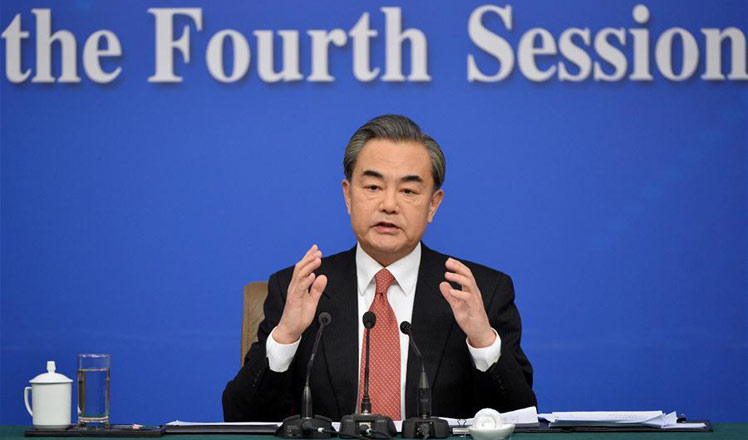
 Foreign Minister Wang Yi meets the press
Foreign Minister Wang Yi meets the press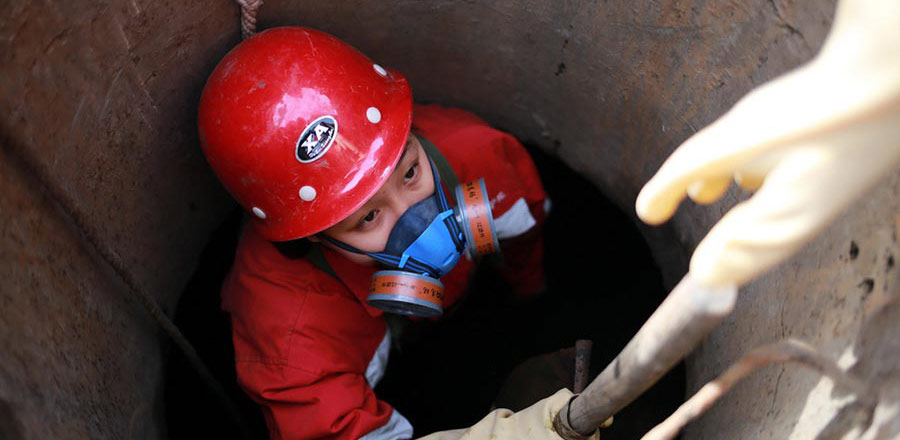
 Women who work underground to keep city clean
Women who work underground to keep city clean
 Students in traditional dresses celebrate Women's Day
Students in traditional dresses celebrate Women's Day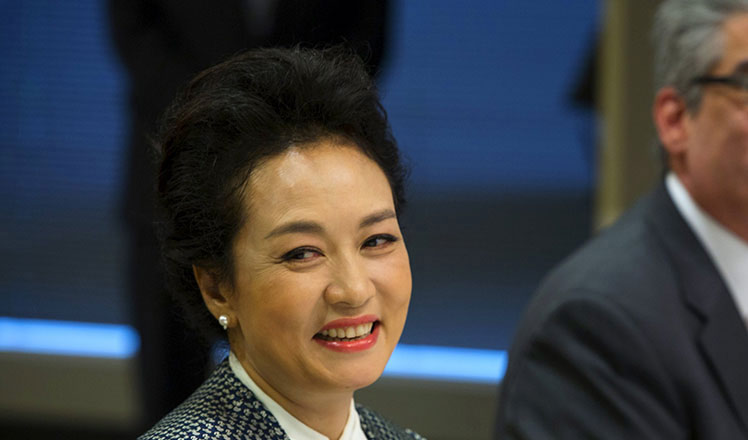
 'She' in China
'She' in China
 Temple fair with 700 years history staged in Henan
Temple fair with 700 years history staged in Henan
 World in photos: Feb 29 - Mar 6
World in photos: Feb 29 - Mar 6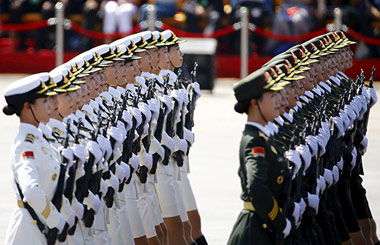
 International status is rising
International status is rising
Most Viewed
Editor's Picks

|

|

|

|
|
|
Today's Top News
What ends Jeb Bush's White House hopes
Investigation for Nicolas's campaign
Will US-ASEAN meeting be good for region?
Accentuate the positive in Sino-US relations
Dangerous games on peninsula will have no winner
National Art Museum showing 400 puppets in new exhibition
Finest Chinese porcelains expected to fetch over $28 million
Monkey portraits by Chinese ink painting masters
US Weekly

|

|







